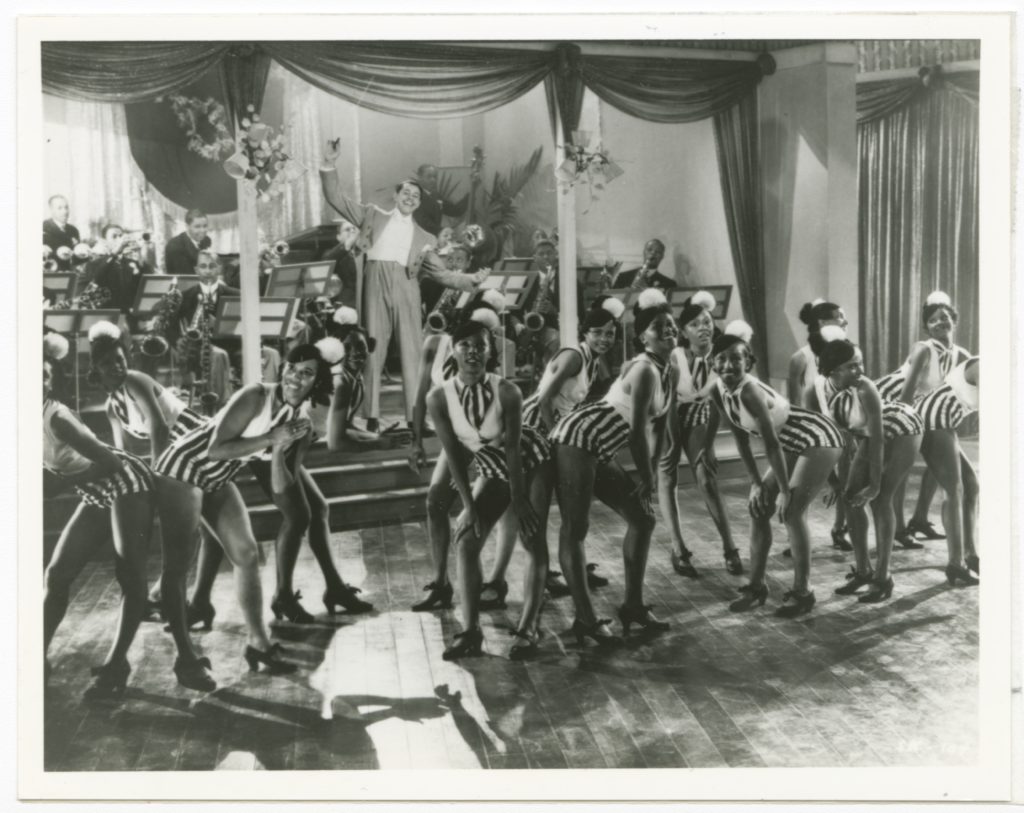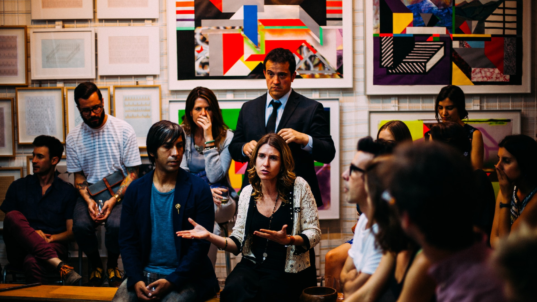
Cab Calloway with band and dancers at the Cotton Club, via National Museum of African American History and Culture
Located in Harlem, the Club Deluxe was an intimate supper club owned by Jack Johnson, the first African American to be the heavyweight boxing champ. He sold the club to a gangster, Owney Madden, who renamed it the “Cotton Club.” Madden’s primary purpose in buying the club was to have an outlet to sell alcohol during the Prohibition Era.
The Cotton Club went “unnoticed” by the police largely because it became a favorite nightspot of the elite of New York. Entrance to the club was expensive.
The Cotton Club featured live music from its house band and invited performers. Duke Ellington was the house band leader for close to four years, and it was during this time that many of his arrangements were first performed.
Many of the performers we now associate with the Great American Songbook were showcased at the Cotton Club. These included Louis Armstrong, Cab Calloway, Lena Horne, and Sammy Davis Jr. All were African American. Because of its location in Harlem and its introduction of African Americans to White audiences, we think of the Cotton Club as a model for racial integration. In fact, the Cotton Club would not admit people of color as guests. Performers were restricted to the stage. The décor of the club was blatantly racist.
Langston Hughes, a prominent African American poet and activist called the Cotton Club a “Jim Crow club for gangsters and monied whites.” He likened the experience to visiting a zoo, “strangers were given the best ringside tables to sit and stare at the Negro customers-like amusing animals in a zoo.”
Rather than supporting an opening of society, the Cotton Club had another unintended consequence. The clubs owned by African Americans in Harlem couldn’t compete with the Cotton Club for entertainers.
When we think of the Cotton Club, we imagine it to be a place where integration got a foothold in society. But that was not the case. It did give a voice to African American performers while asking them to showcase their talent in a racist environment.
Just imagine being asked to perform in an environment where your talent as an artist is appreciated, but your dignity as a person is assaulted. What personal humiliation must the great stars of this era have faced in the environment of the Cotton Club? How do we continue to perpetuate this situation when we celebrate the entertainment products of Black artists and athletes, but don’t celebrate and honor Black lives? Where do we see the “Cotton Clubs” of our own time?
* * *


